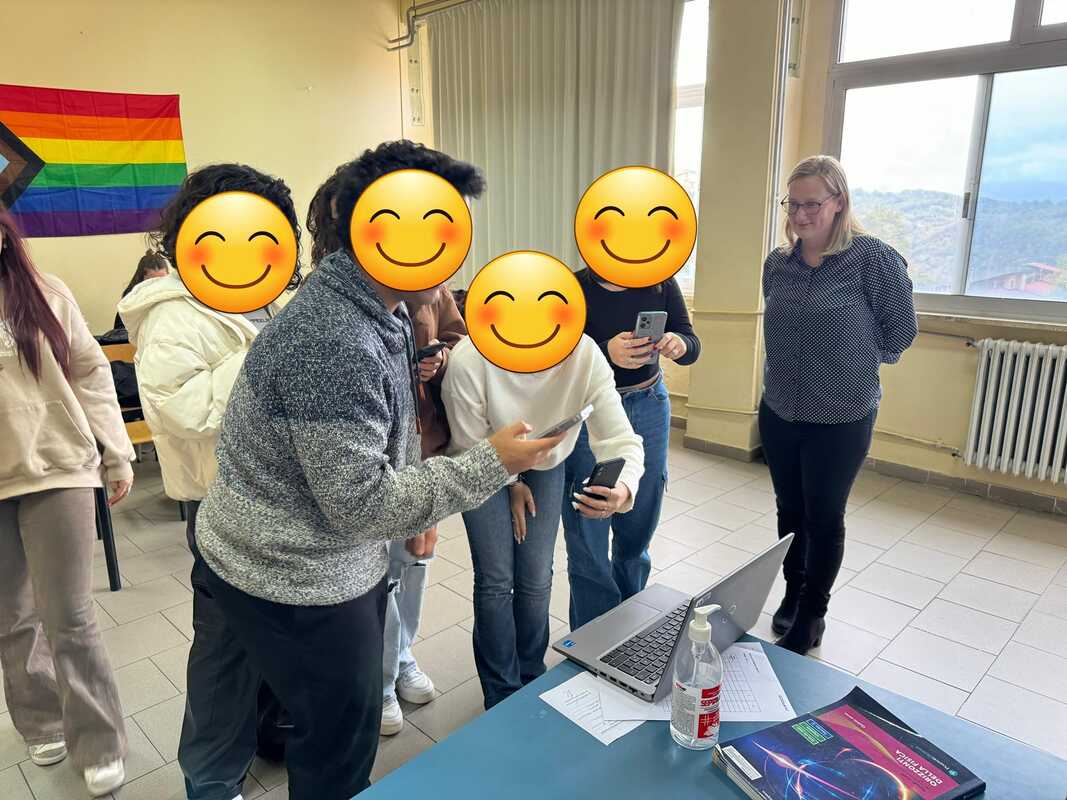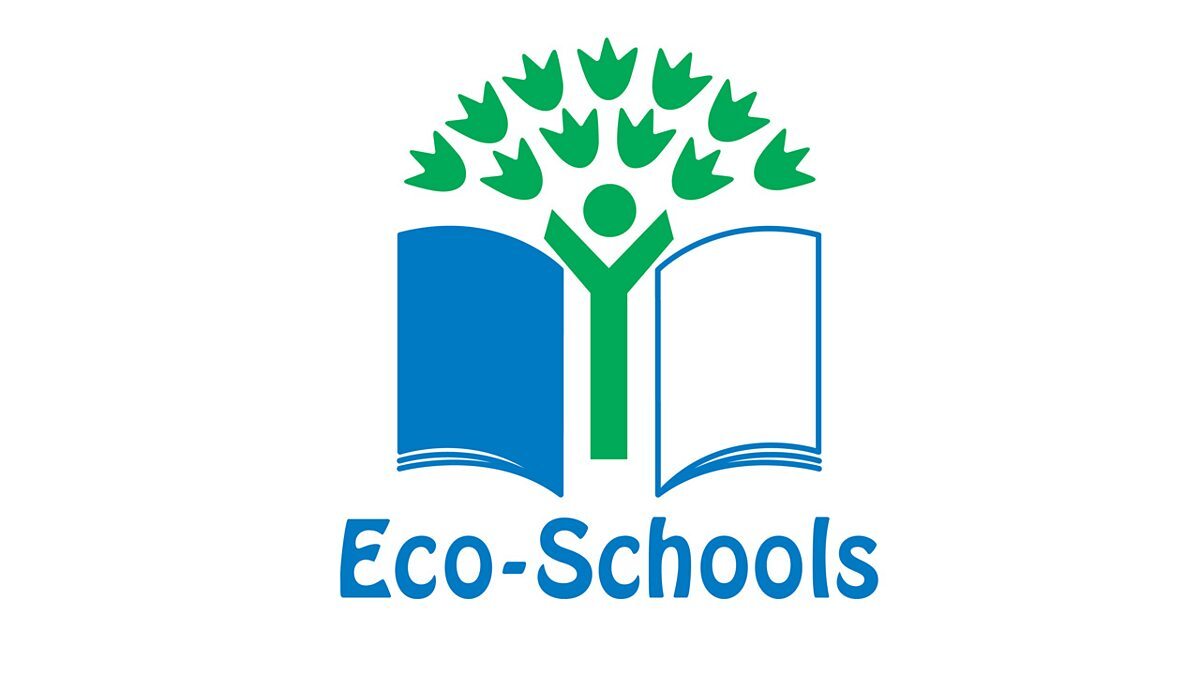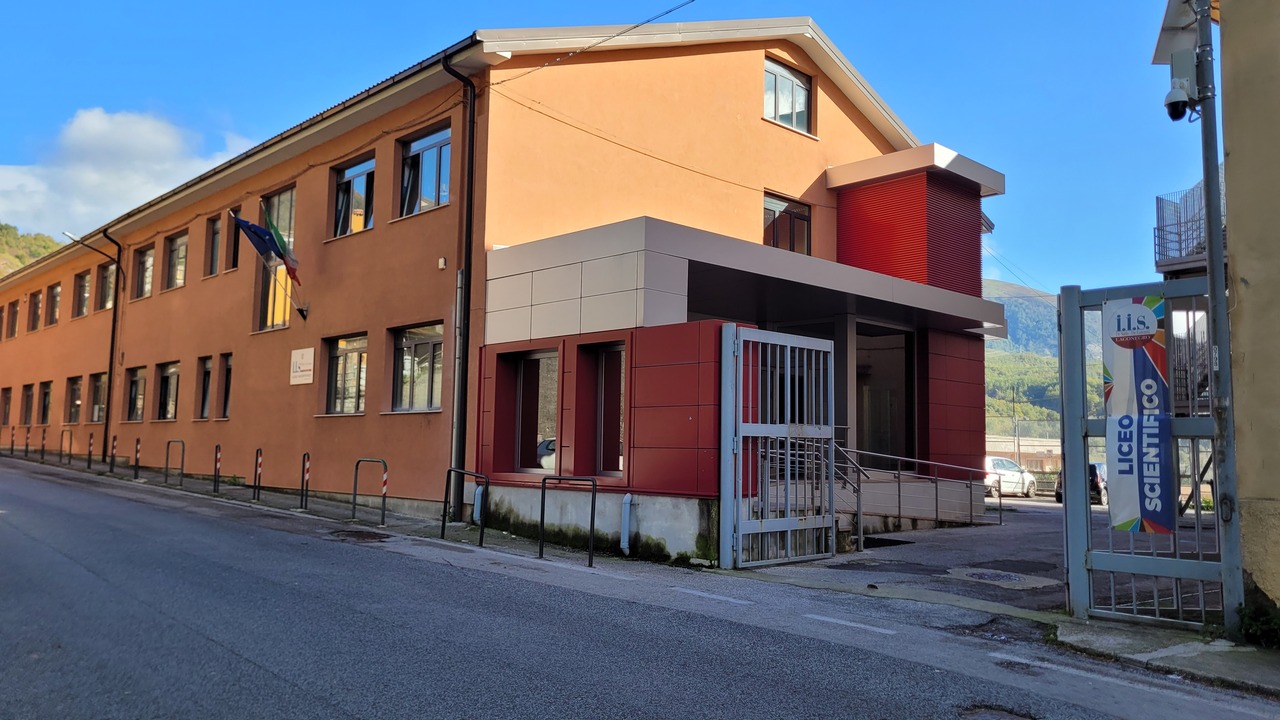20. - 25.11.2023 Erasmus+ Invited Expert in Lagonegro

I participated in an Erasmus+ mobility in Lagonegro, Italy, 20-25 November as an invited expert. This mobility was a part of the Erasmus+ KA122 project O.P.E.N.N.E.S.S.

During the week, I held lessons for upper secondary school students and training sessions for teachers at Istituto D’Istruzione Superiore “F. De Sarlo - G. De Lorenzo”. There were specific goals set for working with students and teachers.
Student lessons:
- Promote the values and principles of Agenda 2030
- Translate the global sustainable development goals into teaching, learning and concrete action learning
- Use meaningful and hands-on learning opportunities
- Learn innovative, participatory and creative methodologies and approaches to the topics:
- Develop global citizenship and a culture of peace and non-violence
- Appreciate intercultural learning and the cultural diversity and heritage
Teacher lectures:
- Learn the key principles to integrate digital technologies into teaching and learning
- Explore various digital resources and tools to facilitate collaborative and self-directed learning
- Use digital tools to assess students
- Discover how digital tools facilitate the analysis of students’ progress as well as teachers’ feedback
- Develop the capacity to empower students and help them to develop their digital skills
The week was extremely rewarding. The school staff welcomed me warmly and took good care of me during my visit. This was my first visit to southern Italy. I have heard a lot about how friendly and kind-hearted southern Italians are, and the week in Lagonegro and the short visits to Naples confirmed this!
Monday 20 November
On Monday, November 20, students and I got to know the activities of the European Blue Schools network, the global Eco-schools programme, and the operating culture of UNESCO Associated Schools Network schools through discussions and different kind of action-based activities.
European Blue schools network
The Network of European Blue Schools aims to empower schools and teachers who are agents of change for the ocean and support them in educating the new generation of more aware, responsible, and engaged Ocean Literate citizens.
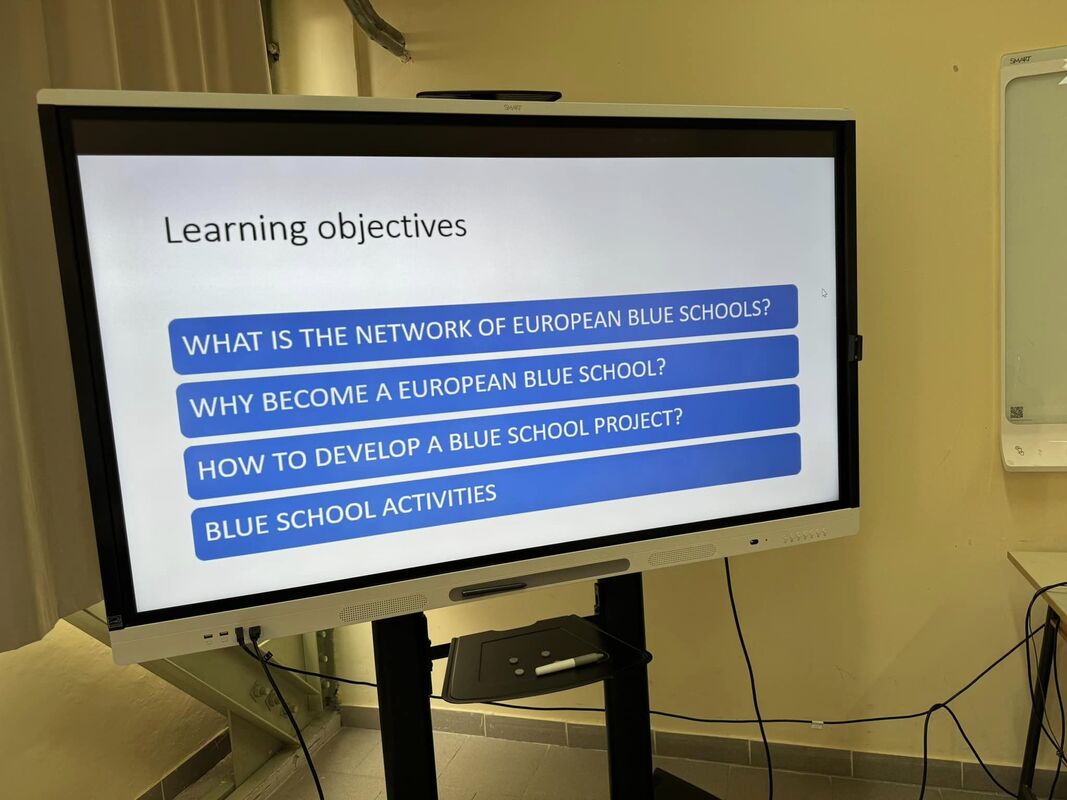
Why become a European Blue School?
Eco-Schools programme
All the schools and kindergartens in Orivesi participate in the global Eco-schools programme. Eco-Schools programme is one of the largest global sustainable schools programme.
Eco-Schools programme’s greatest achievement is arguably the fact that it produces generation after generation of sustainably minded, environmentally conscious people. These individuals will carry the behavioural patterns they uptake under the auspices of Eco-Schools with them through life, in turn teaching the next generation the habits to make a difference.
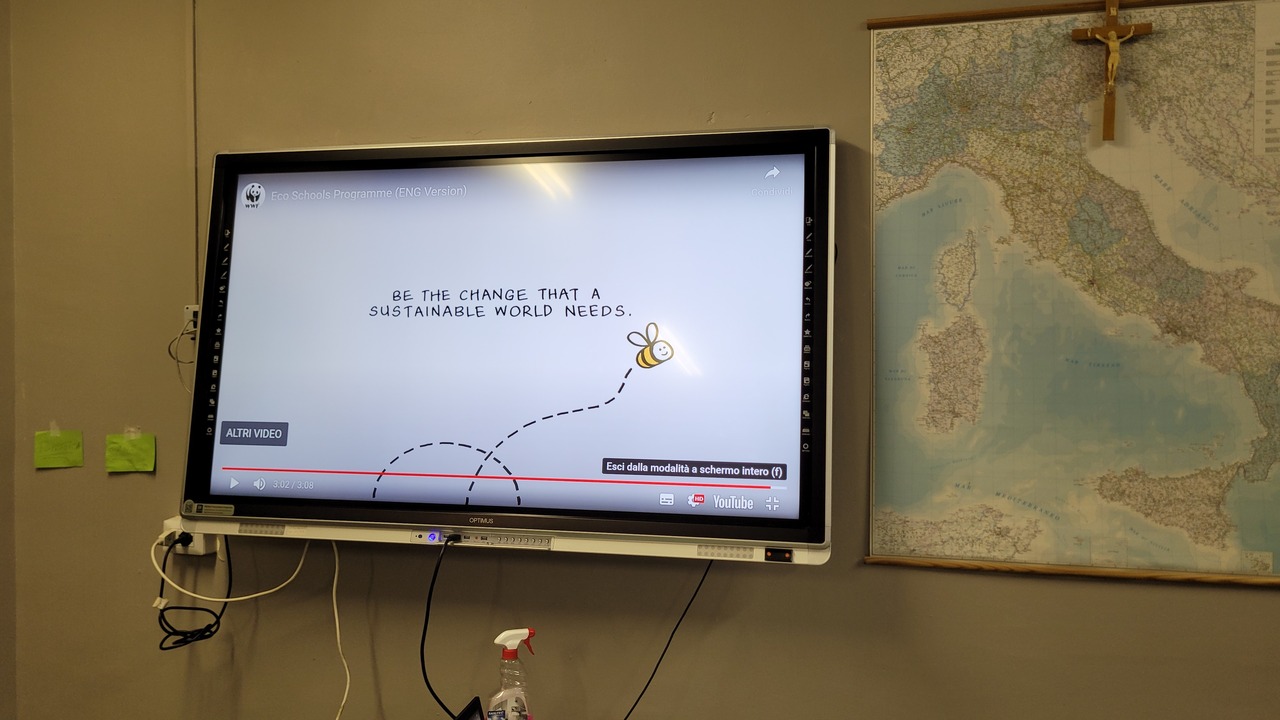
Eco-Schools is implemented in 73 countries by FEE member organisations and in 26 countries through International Schools. The Eco-Schools programme is an ideal way for schools to embark on a meaningful path towards improving the environmental footprint of a school, a change which inevitably leads to a more sustainable, less costly and more responsible school environment. Eco-Schools challenges students to engage in tackling environmental problems at a level where they can see tangible results, spurring them on to realise that they really can make a difference.
Learn more about Eco-schools programme:
https://www.ecoschools.global/
Oriveden yhteiskoulu and lukio are UNESCO schools and members of the UNESCO Asscociated Schools Network. The UNESCO Associated Schools Network (ASPnet) connects more than 12,000 schools in 182 countries around a common goal to build peace in the minds of children and young people. Through concrete actions member schools promote the ideals of UNESCO valuing rights and dignity, gender equality, social progress, freedom, justice and democracy, respect for diversity and international solidarity. The Network operates at international and national levels with three clear priorities: education for sustainable development, global citizenship education and inter-cultural and heritage learning.

What you need to know about The UNESCO Associated Schools Network:
https://www.unesco.org/en/aspnet

In the afternoon, I worked with teachers on the topics of "Key principles to integrate digital technologies into teaching and learning" and "Do's and don'ts of digital technologies in teaching."
On Tuesday, November 21, the topics of the morning lessons were "Wellbeing Academy," "Hello Teenagers! – Inclusion and participation," and "Young reporters for the environment."
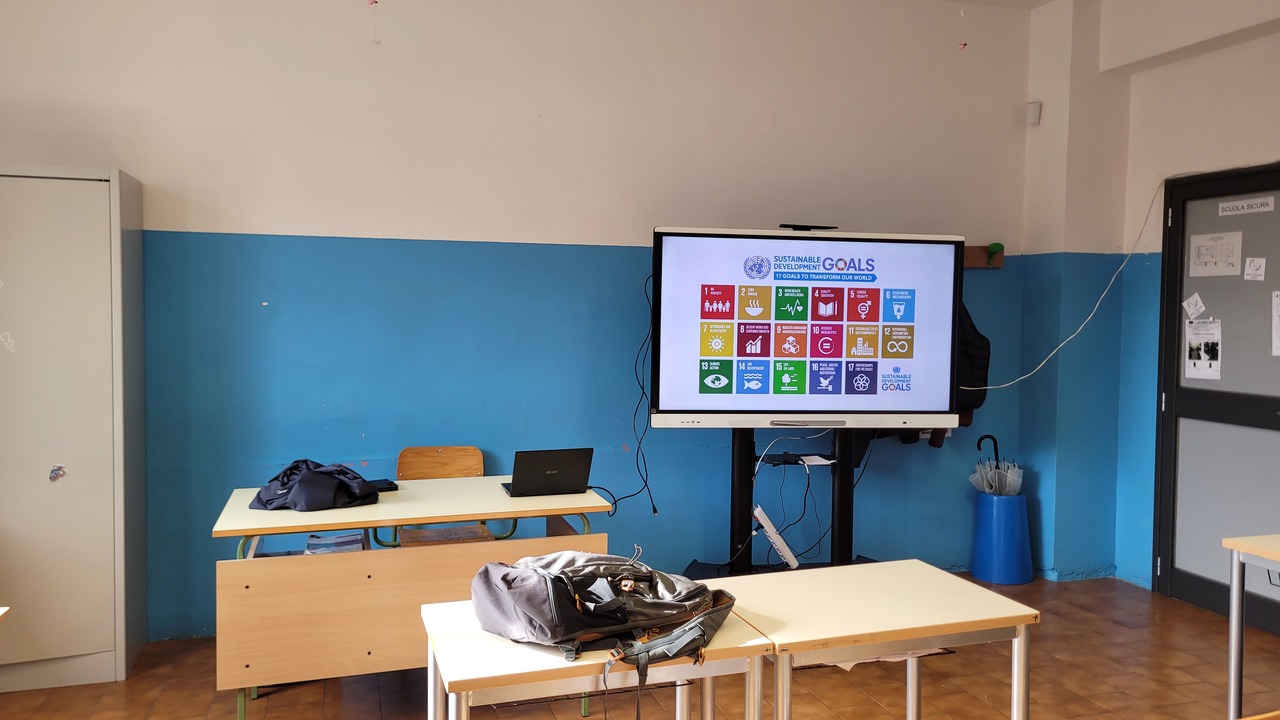
Hello Teenager!
Oriveden yhteiskoulu and Oriveden lukio participated 10/2020 - 9/2023 in the Erasmus+ KA229 project Hello Teenager! The goals of the project work were to increase young people's well-being and participation, strengthen internationality in school life, and build a sustainable future.
During the project period, the well-being agent activity was launched in the partner schools. Through the agent activity, all interested students can participate in the development of school operations. Students are active actors in the school community. Students plan and implement activities that promote well-being, participation, and the construction of a sustainable future in school life.

Wellbeing Academy
I presented the Wellbeing Agent activity last spring at the eTwinning Schools Conference, and there, together with other conference guests, we developed an eTwinning project aimed at launching and developing the Wellbeing Agent activity for other European schools to benefit from. During my visit to Lagonegro, the Italian school students got to learn about these Hello Teenager project well-being agent activities.
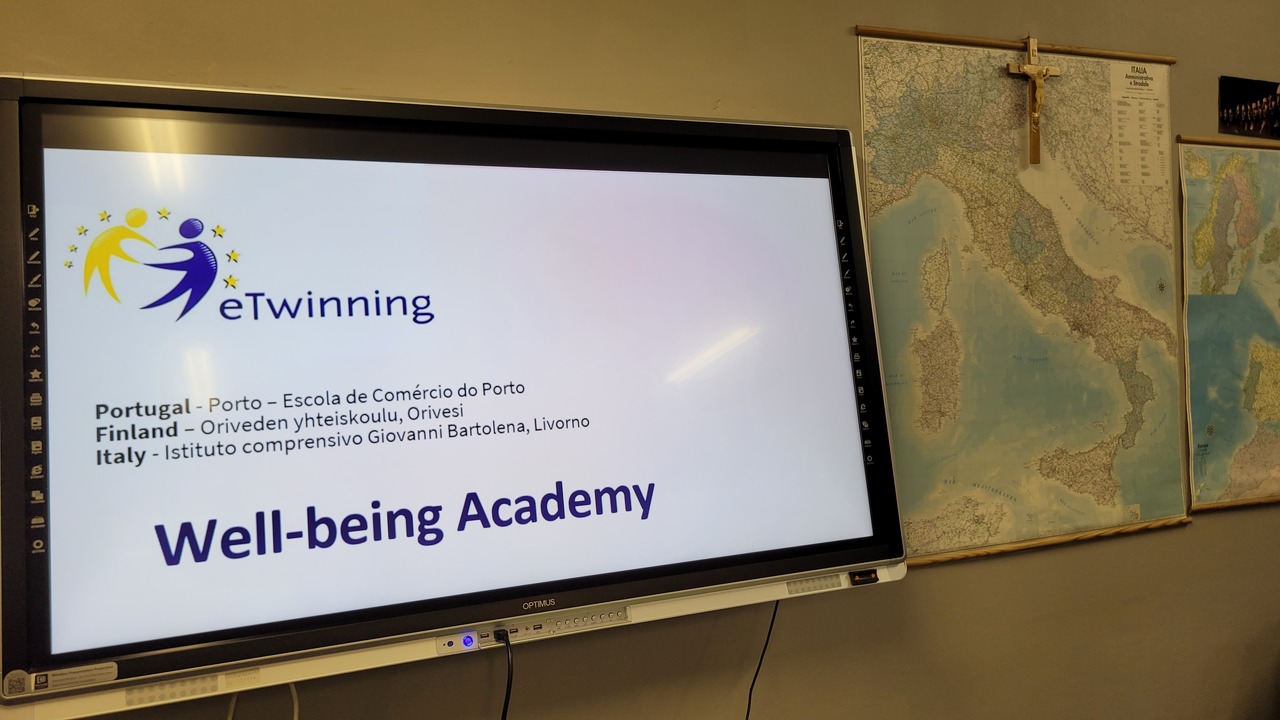
eTwinning project "Wellbeing Academy"
Young Reporters for the Environment
Oriveden lukio represents Finnish UNESCO schools in the global UNESCO ASPnet FEE Young Reporters for the Environment Litter Less campaign.
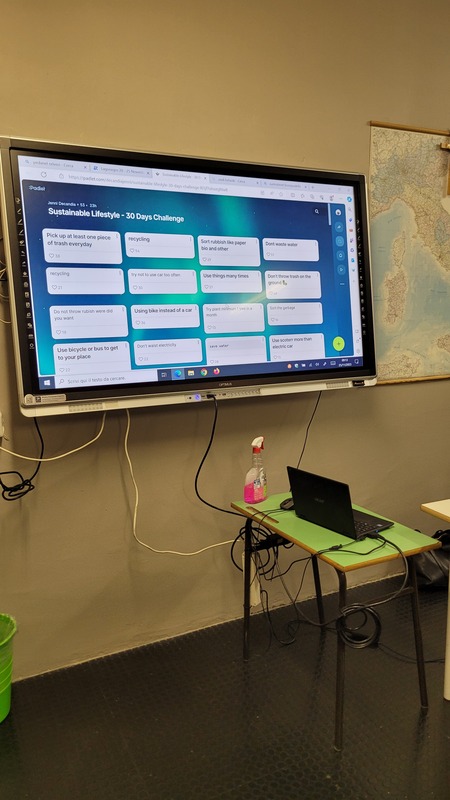
The Litter Less Campaign (LLC) is a joint project between the Mars Wrigley Foundation and the Foundation for Environmental Education (FEE). The campaign underlines tangibly the importance of dealing with the issue of litter and waste to minimize its negative impact on the environment.
A select number of ASPnet members are invited to participate in this pilot project, which provides teachers with the opportunity to engage students on the issue of litter and to creatively raise awareness in their local communities and beyond. Through the campaign, students will be empowered to understand key litter and waste issues in their communities, and in turn drive awareness-raising campaigns that focus on e.g. responsible consumption, re-use and recycling, negative impacts of waste, thereby promoting and long-term behaviour change as well as a cleaner environment.
Young Reporters for the Environment (YRE) is an award-winning programme coordinated by Foundation for Environmental Education (FEE). The programme empowers young people to take an educated stand on environmental issues they feel strongly about and gives them a platform to articulate these issues through the media of writing, photography or video.
Read more about Young Reporters for the Environment (YRE) programme:
https://www.yre.global/our-programme-yre
Litter is a great theme to start working on environmental issues with students. It is visible and it is easy to see improvements. Through the YRE programme, students accompanied by their teachers investigate local litter issues, for example the effect of litter on local wildlife or human health, the packaging most often discarded by people, etc. The students then create journalistic pieces in the form of articles, photo reportages, or video clips. The production must include suggestions for solutions on minimizing litter. Students share their investigations by posting their articles, photographs and videos through print, broadcast or social media.
YRE resources for students:
https://www.yre.global/video-tutorials
YRE resources for teachers:
https://www.yre.global/yre-lesson-plans
Learn more about the YRE methodology:
https://www.yre.global/our-methodology
On Tuesday afternoon, we focused with teachers on the topics of "Digital resources and tools to facilitate collaborative and self-directed learning" and "Good digital practices on facilitating collaborative and self-directed learning."

Wednesday 22 November
On Wednesday, we discussed the world in 2050 with students using innovative, participatory, and creative methodologies. Oriveden yhteiskoulu and lukio are members of the regional UNESCO ASPnet school network PAX. Young people from PAX network schools have participated in the World in 2050 discussion together, and now Italian students got to exchange their thoughts on the topic.
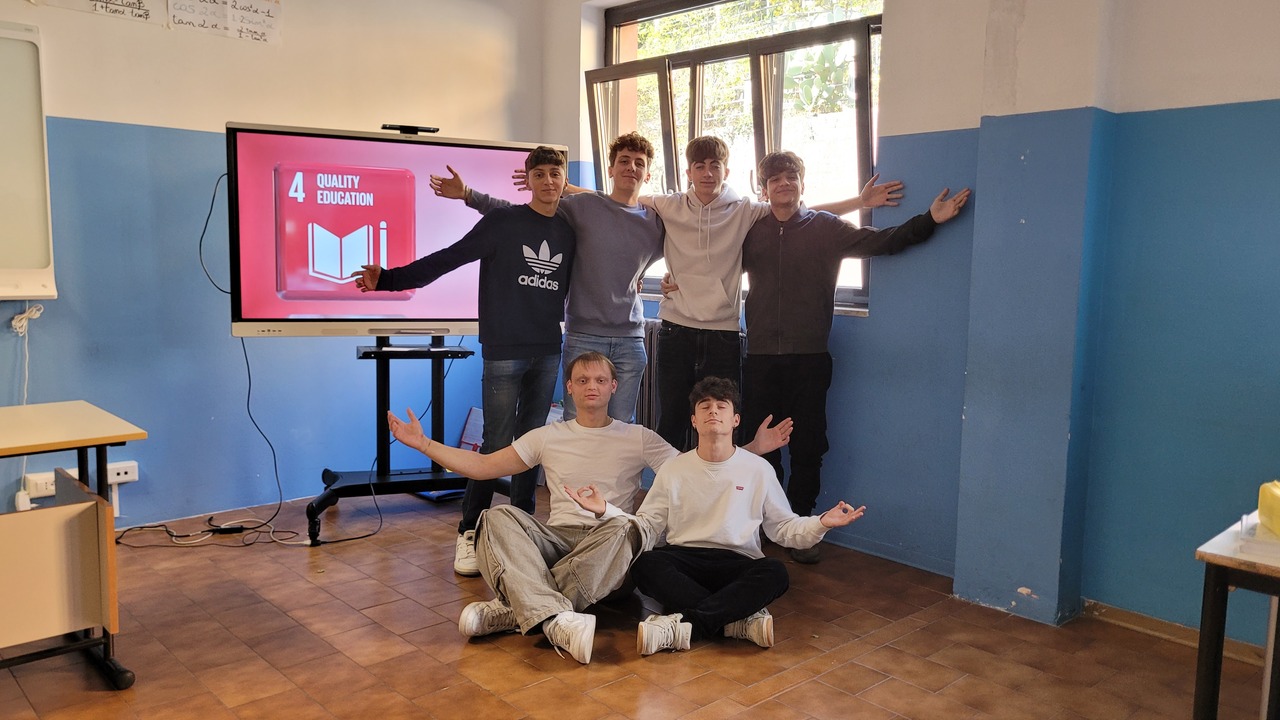
In the afternoon, the topics with teachers were "Digital tools to assess students" and "Good practices on using digital assessment tools."

Thursday 23 November
On Thursday, the topic with students was culture, Inter-cultural and heritage learning, and Culture of peace and non-violence.

UNESCO is working towards a truly global movement for fostering a culture of peace and non-violence worldwide. A culture of peace is an integral approach to preventing violence and violent conflicts, and an alternative to the culture of war and violence based on education for peace, the promotion of sustainable economic and social development, respect for human rights, equality between women and men, democratic participation, tolerance, the free flow of information and disarmament.

UNESCO works to engage its interdisciplinary mandate in culture and education as part of a renewed vision of education grounded in the respect for cultural diversity and human rights. In an increasingly diverse, interdependent and volatile world, what counts as high quality education has evolved. Having the breadth of skills to understand, adapt and thrive in the face of changing social, economic and technological demands is paramount. Creativity, innovation, critical-thinking, resilience and empathy – this skillset is vital to harness the promises and mitigate challenges today and in the future.

From heritage to the cultural and creative industries, UNESCO strives to integrate culture in a wide range of education contexts and approaches to better equip learners of all ages with the knowledge, skills and attitudes to fulfill their potential, face future challenges, and forge more equitable and peaceful futures for all. Read more:
https://www.unesco.org/en/culture-education

On Thursday afternoon, teachers focused on the topics of "How digital tools facilitate the analysis of students' progress as well as teachers' feedback" and "Good practices on analysing students' progress and on giving feedback by using digital tools."
Friday 24 November
On Friday, the theme with young people was Green Teens News. In the lessons, we got to know Oriveden yhteiskoulu's previous eTwinning project Green Teens News.
The Italian students got to participate in the eTwinning project activities aiming to strengthen student participation. During the Green Teens News lessons, students from Lagonegro also got to participate in Oriveden lukio's campaign activities related to the Young reporters for the environment campaign.
In the last section of the teacher training, we focused on the topics of "Empowering students and helping them to develop their digital skills" and "Good practices on supporting students to develop their digital skills."
During the training sessions of teachers the European School Education Platform was introduced to the participating teachers.
ESEP is the meeting point for all stakeholders in the school education sector – school staff, researchers, policymakers, and other professionals – spanning every level from early childhood education and care to primary and secondary school, including initial vocational education and training. The platform is also home to eTwinning, the community for schools in Europe. This online multilingual platform is free of charge for all users. Read more:
https://school-education.ec.europa.eu/en
On Saturday, the students and I went on a joint virtual trip to Europe.
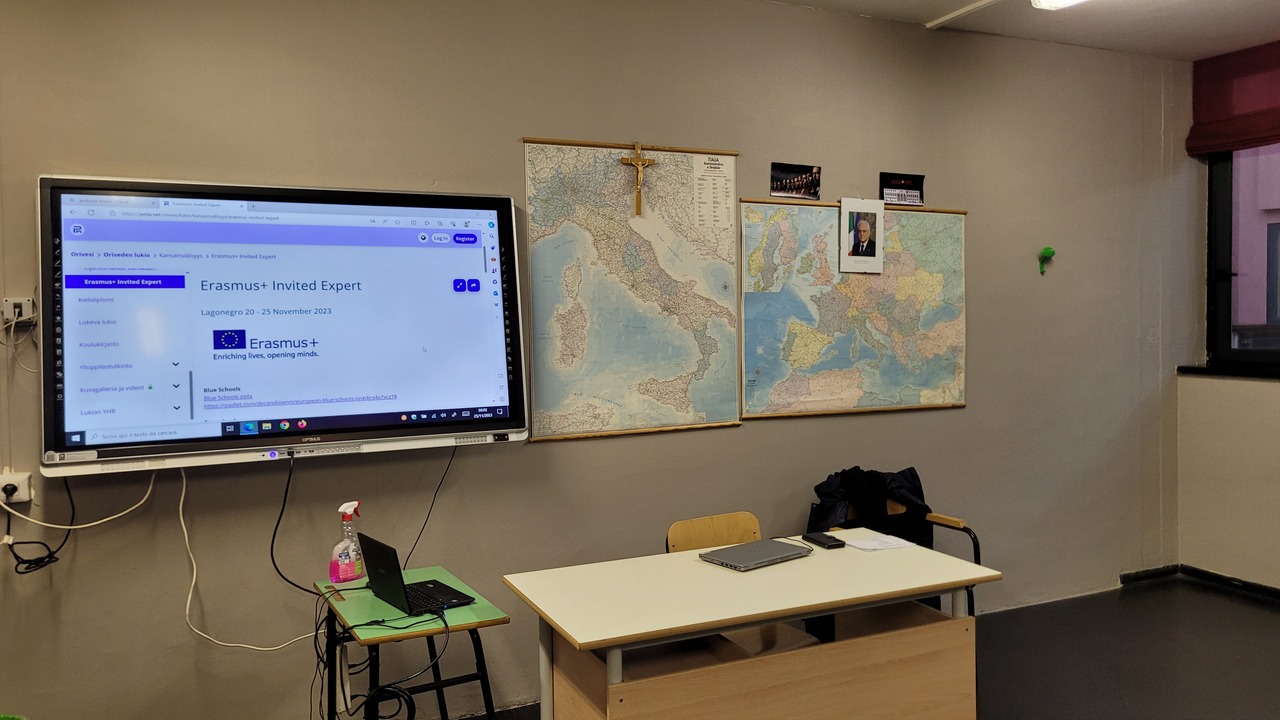

The best thing about the week in Italy were the discussions with students and teachers. I collected feedback from participants on the week's lessons and training sessions. It was nice to read the feedback, and it seems that the week was rewarding for all of us. Here are a few examples of the feedback:
“Today I did funny and interesting activities.”
“It was a beautiful experience! I'm looking forward to doing it again.”
“I'm very satisfied with the lessons given by the expert, because she has been very kind in general and very clear in explanations.”
"I learned the etwinning program, the use of new applications to edit contents and the use of applications to assess students."
“I appreciate so much both the methods of work and the continuous feedback with Mrs. Decandia, that gave me the opportunity to talk about my experiences.”
“First of all, I learnt many new things about digital tools to improve my daily work in the classes. Then, I discovered more solutions to give immediate support to my students in their didactical activities. Finally, I've tried to comprehend the right use of apps and devices that should help me in my job.”
Overall, I was very pleased with the week in Lagonegro. I am grateful for the opportunity to have worked with such enthusiastic and dedicated teachers and students!

